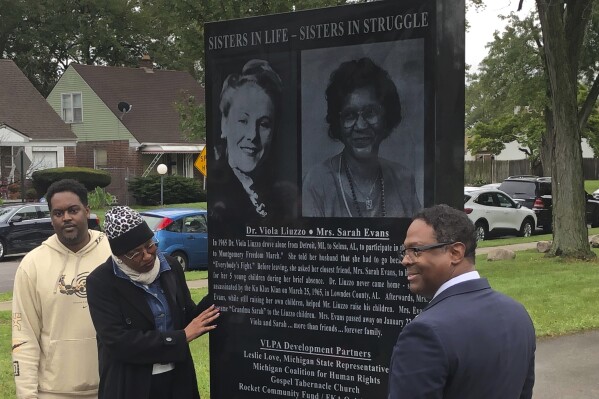Judge says freestanding birth centers in Alabama can remain open, despite ‘de facto ban’
MONTGOMERY, Ala. (AP) — A judge ruled that Alabama cannot shut down freestanding birth centers that meet certain standards, siding with midwives and doctors who challenged what they described as Alabama’s de facto ban on the facilities.
Montgomery Circuit Court Judge Greg Griffin on Saturday issued a preliminary injunction that for now prevents the Alabama Department of Public Health from refusing to license the centers as long as they demonstrate compliance with standards established by the American Association of Birth Centers. The centers are where babies are delivered via the midwifery care model.
The ruling provides a pathway for the birth centers to get licensed to operate while a lawsuit goes forward challenging a requirement for the facilities to be licensed as hospitals.
The ruling came in a lawsuit filed by the operators of the Oasis Family Birthing Center in Birmingham, Alabama, which closed, and two others that paused plans to open.
 No. 12 Alabama beats Mississippi State for 16th straight time, 40-17 in Starkville
No. 12 Alabama beats Mississippi State for 16th straight time, 40-17 in Starkville
 No. 12 Alabama’s defense holding its own while offense struggles. Mississippi State the next foe
No. 12 Alabama’s defense holding its own while offense struggles. Mississippi State the next foe
 Monument honoring slain civil rights activist Viola Liuzzo and friend is unveiled in Detroit park
Monument honoring slain civil rights activist Viola Liuzzo and friend is unveiled in Detroit park
“We are pleased that the court put an end to the Alabama Department of Public Health’s unlawful and dangerous de facto ban on birth centers, allowing the dedicated providers in this case to offer pregnant Alabamians the essential health care they need in birth centers throughout the state,” Whitney White, an attorney with the American Civil Liberties Union Reproductive Freedom Project, said in a statement.
The ACLU of Alabama said that after the ruling that Oasis will be “working to obtain a license from ADPH and resume providing patient care as soon as possible.”
The Alabama Department of Public Health had opposed the injunction, writing in a court filing that allowing the facilities to remain open gave an “implied badge of safety to potential mothers.” The department argued the state has a legal duty to regulate healthcare providers and the obstetrical care provided at facilities requires licensure as a hospital.
The providers who filed the lawsuit said the freestanding birth centers operate under the midwifery model of care, instead of obstetrics, and provide low-risk women an alternative place to deliver. The providers argued that the centers provide needed care in a state that has long struggled with high rates of infant mortality.
Alabama consistently has one of the highest infant mortality rates in the nation with 7.6 deaths per 1,000 live births in 2022. The mortality rate for Black babies in the state — 12.1 deaths per 1,000 live births — is twice that of white babies, according to statistics from the Alabama Department of Public Health.
Disclaimer: The copyright of this article belongs to the original author. Reposting this article is solely for the purpose of information dissemination and does not constitute any investment advice. If there is any infringement, please contact us immediately. We will make corrections or deletions as necessary. Thank you.






